A capacitor has capacitance C. Is this information sufficient to know what maximum charge the capacitor can contain? If yes, what is this charge? If no, what other information is needed?
To determine whether the information about a capacitor's capacitance C is sufficient to know the maximum charge it can contain, we can follow these steps:
Step 1: Understand the definition of capacitance
Capacitance C is defined as the ability of a capacitor to store charge per unit voltage. The relationship is given by the formula:
Q=C⋅V
where Q is the charge stored in the capacitor and V is the voltage across the capacitor.
Step 2: Analyze the given information
The problem states that we have a capacitor with a capacitance C. However, this information alone does not provide any details about the voltage V applied across the capacitor.
Step 3: Determine if additional information is needed
Since the charge Q stored in the capacitor depends on both the capacitance C and the voltage V, knowing only the capacitance C is not sufficient to determine the maximum charge. We need to know the voltage V across the capacitor to calculate the maximum charge.
Step 4: State the required information
To find the maximum charge that the capacitor can hold, we need to know the potential difference V across the capacitor. The maximum charge can then be calculated using the formula:
Qmax=C⋅V
Conclusion
In summary, the answer to the question is no, the information about capacitance C alone is not sufficient to determine the maximum charge. We also need to know the potential difference V across the capacitor.
---
Capacitance C is defined as the ability of a capacitor to store charge per unit voltage. The relationship is given by the formula:
Q=C⋅V
where Q is the charge stored in the capacitor and V is the voltage across the capacitor.
The problem states that we have a capacitor with a capacitance C. However, this information alone does not provide any details about the voltage V applied across the capacitor.
Since the charge Q stored in the capacitor depends on both the capacitance C and the voltage V, knowing only the capacitance C is not sufficient to determine the maximum charge. We need to know the voltage V across the capacitor to calculate the maximum charge.
To find the maximum charge that the capacitor can hold, we need to know the potential difference V across the capacitor. The maximum charge can then be calculated using the formula:
Qmax=C⋅V
In summary, the answer to the question is no, the information about capacitance C alone is not sufficient to determine the maximum charge. We also need to know the potential difference V across the capacitor.
Topper's Solved these Questions
- BOOK - HC VERMA ENGLISHCHAPTER - CAPACITORSEXERCISE - Exercise65videos
CAPACITORS
- BOOK - HC VERMA ENGLISHCHAPTER - BOHR'S MODEL AND PHYSICS OF THE ATOMEXERCISE - Short Answer10videos
BOHR'S MODEL AND PHYSICS OF THE ATOM
- BOOK - HC VERMA ENGLISHCHAPTER - DISPERSION AND SPECTRAEXERCISE - Question for short Answer6videos
DISPERSION AND SPECTRA
Similar Questions
If you know ( E) at a given point, can you calculate V at that point ? If not, what further information do you need ?
View SolutionCharge on the capacitor having capacitance C2 in steady state is
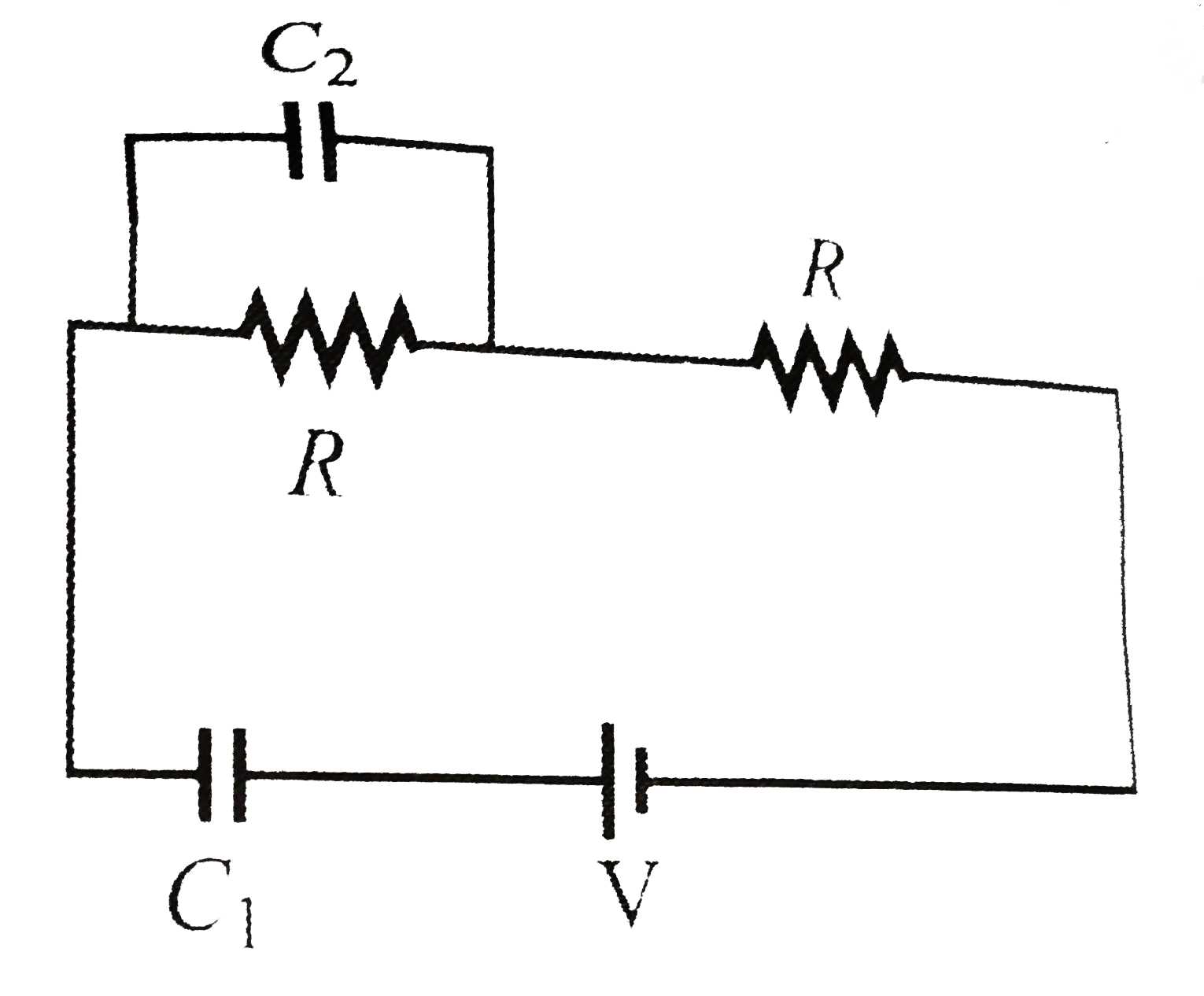 View Solution
View SolutionWhat is capacitance of the capacitor shown in figure?
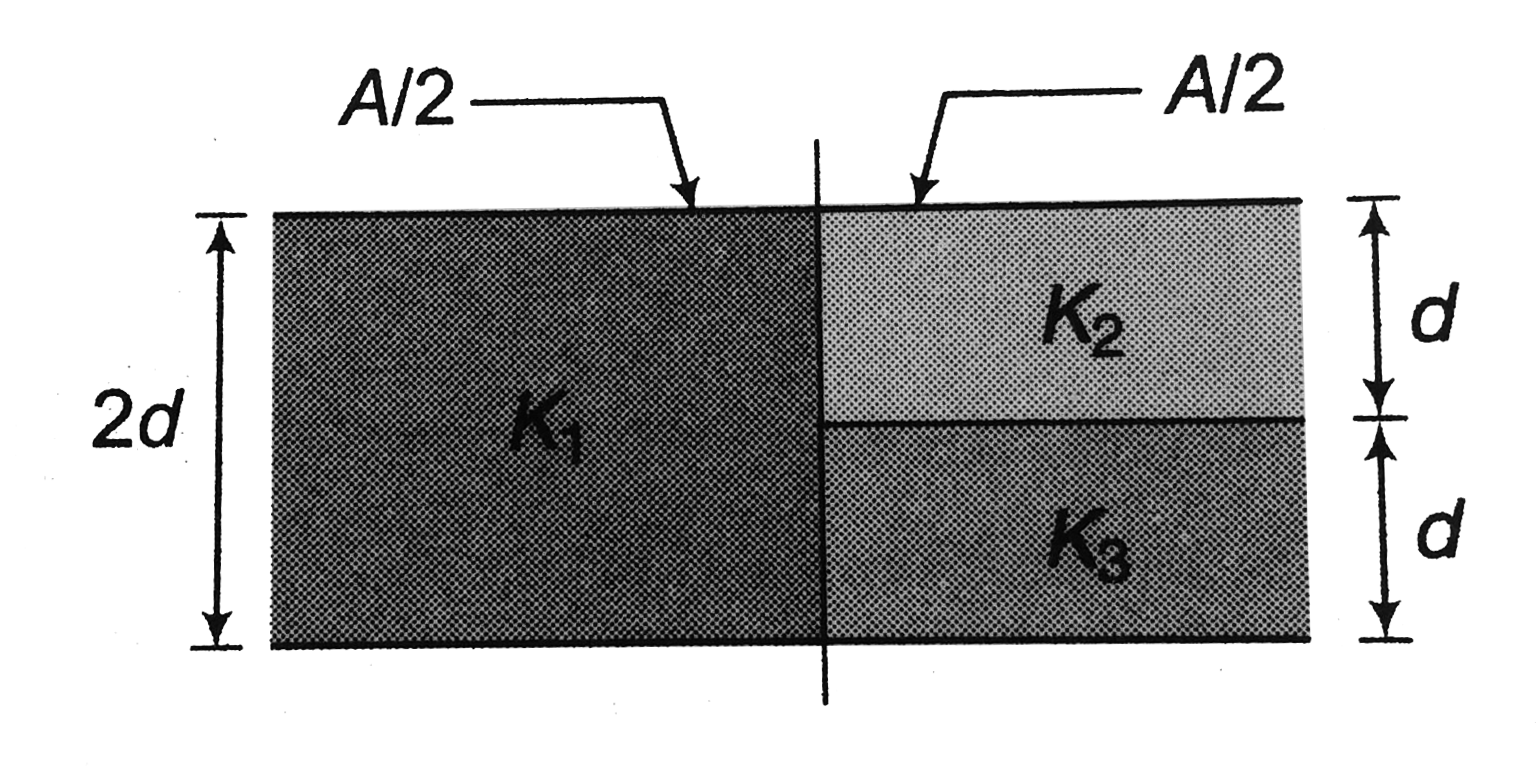 View Solution
View SolutionA capacitor of capacitance C has charge Q. it is connected to an identical capacitor through a resistance. The heat produced in the resistance is
View SolutionA capacitor of capacitance C carrying charge Q is connected to a source of emf E. Finally, the charge on capacitor would be
View SolutionIn the given circuit, the capacitor of capacitance C is charged by closing key K at t = 0. Find the time required to charge the capacitor up to the maximum charge for the given circuit, if it were to be charged with the charged with constant initial charging rate at t=0 in the given circuit.
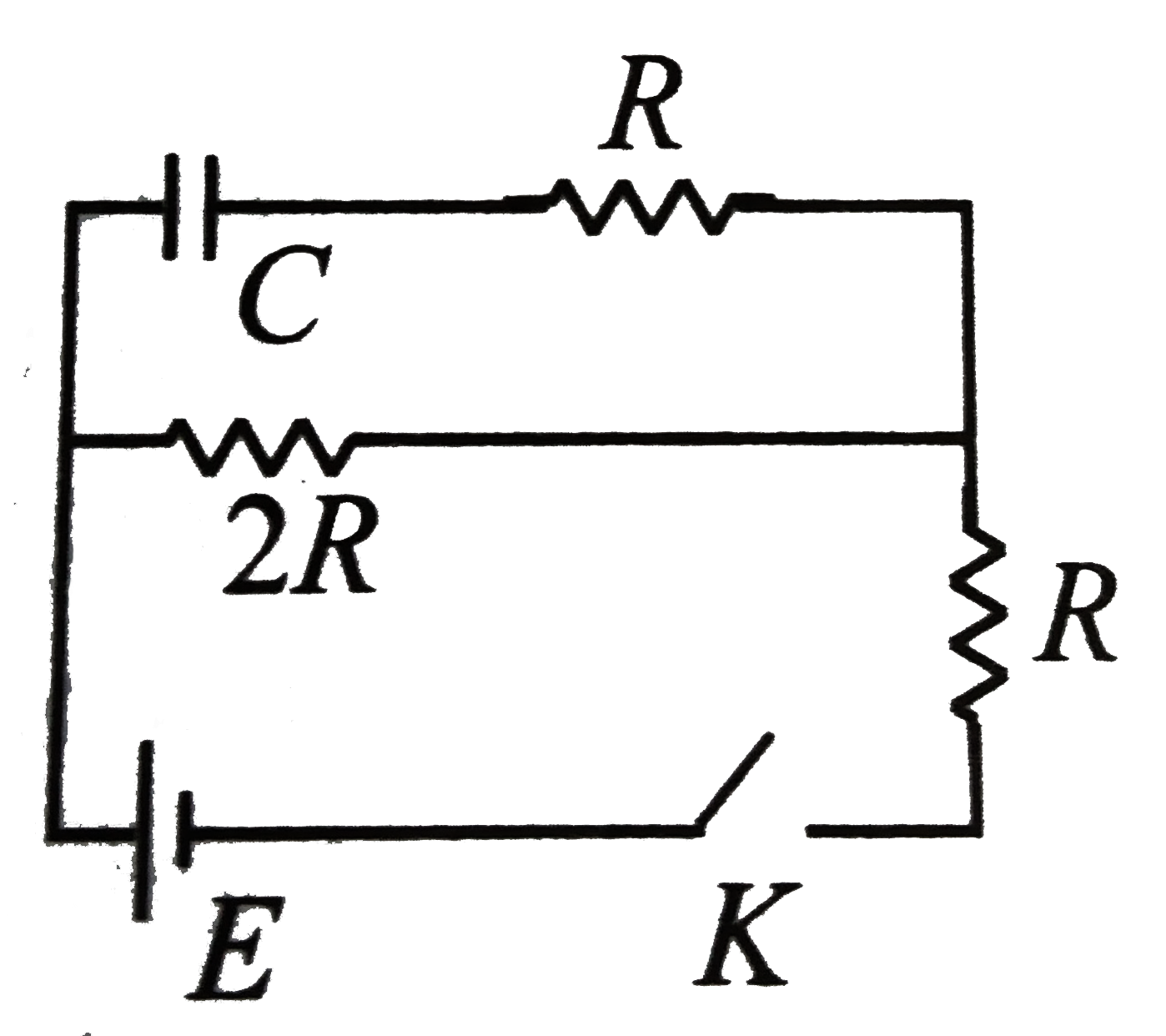 View Solution
View SolutionFigure shows five capacitors connected across a 12V power supply. What is the charge on the 2μF capacitor ?
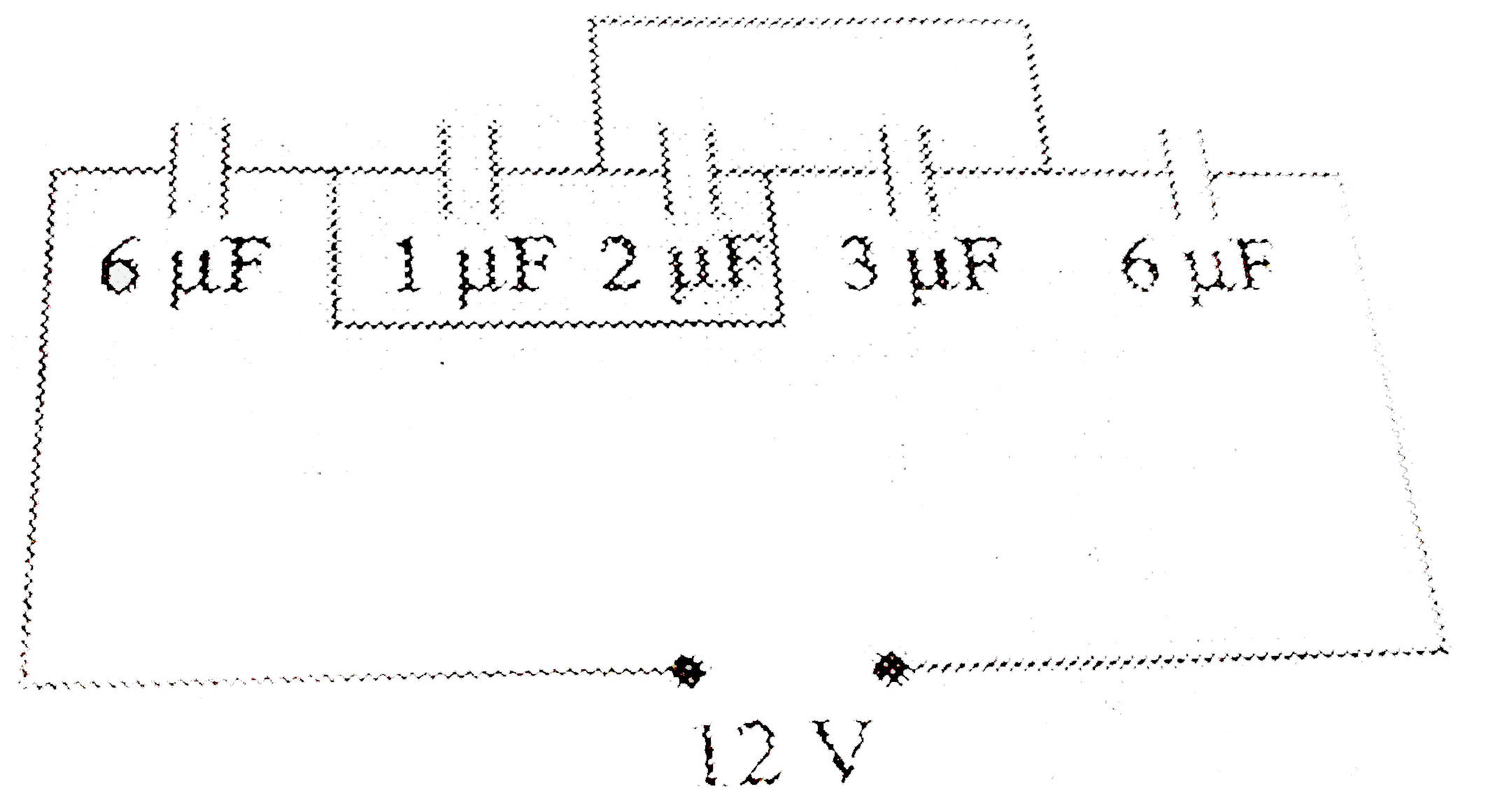 View Solution
View SolutionA parallel plate capacitor of capacitance C is connected to a battery and is charged to a potential difference V. Another capacitor of capacitance 2C is ismilarly charged to a potential difference 2V. The charging battery is now disconnected and the capacitors are connected in parallel to each other in such a way that the poistive terminal of one is connected to the negative terminal of the other. The final energy of the configuration is
View SolutionThree capacitor A,B, and C, are connected in a circuit as shown in. What is the charge in μC on the capacitor B?
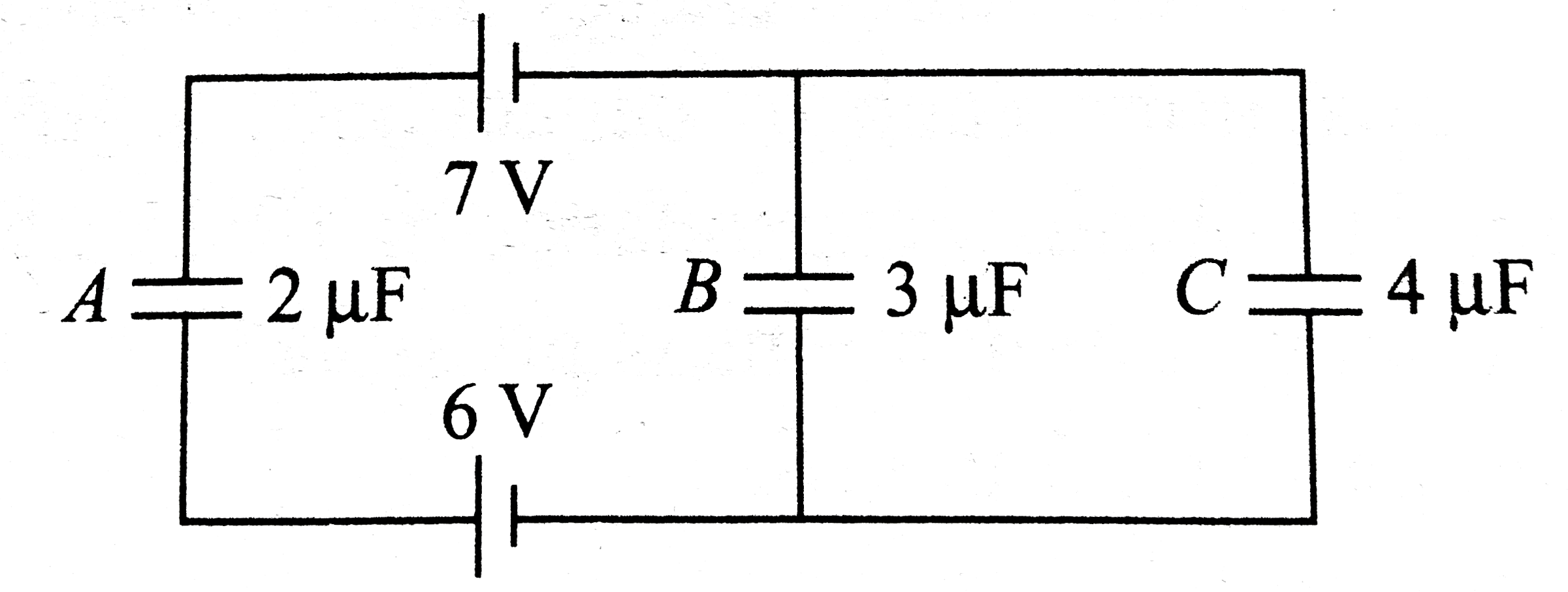 .View Solution
.View SolutionA capacitor of capacitance C is given a charge Q. At t=0,it is connected to an uncharged of equal capacitance through a resistance R. Find the charge on the second capacitor as a function of time.
View Solution
